Exercise is the cornerstone of a well-rounded healthy lifestyle. It supports numerous facets of physical health. Let’s explore 5 reasons why exercise is important. It fosters 1-muscle development and better metabolism, 2-cardiovascular health, 3-bone and joint strength, 4-cognitive function and mood, and 5-disease prevention, which often results in longevity, and a better quality of life.
In a world where sedentary lifestyles are increasingly common, exercise becomes an essential tool for maintaining a healthy body. From resistance training, to high-intensity interval training (HIIT) to steady-state cardio exercises, each activity contributes to a healthier body.
Take care of your body through regular exercise for numerous benefits for your overall well-being!
1-Exercise Strengthens Muscles
Think of exercise as a sculptor that shapes your body. Regular physical activities like weightlifting, resistance training, bodyweight exercises, or even practicing yoga, encourages muscle growth. When individuals engage in physical activities such as running or swimming, their bodies increase in lean muscle mass.
Imagine exercise as a personalized workout for your muscles. Strength training, in particular, is like giving your muscles a friendly nudge to become more robust. This process involves tiny muscle fibers repairing and rebuilding, resulting in increased muscle mass and strength.
As you gradually increase the weights or resistance, you’re pushing your muscles to handle more load, and in response, they become even more powerful. This not only makes everyday tasks easier but also helps prevent age-related muscle loss, which is particularly crucial as we get older.
-Exercise and Metabolism: A Dynamic Duo
Weight management isn’t about fad diets – it’s about finding a sustainable balance. Exercise is your partner in this journey. It’s like a friendly fire that burns calories, helping you shed those extra pounds or maintain a healthy weight.
When you have more lean muscle mass, your body becomes a calorie-burning machine—even when you’re resting.
Imagine your metabolism as your energy engine. The better your muscles work, the more efficient this engine becomes. During exercises like strength training, your muscles need energy for movement. This need boosts your metabolism, both during and after your workout.
The Afterburn Effect
Here’s the cool part: after you’re done exercising, your body keeps burning calories. It’s like a bonus for your metabolism. This “afterburn” is called excess post-exercise oxygen consumption (EPOC). As your muscles grow stronger, this effect helps manage your weight better.
Power of Exercise and Metabolism
Whether you’re lifting weights, trying bodyweight exercises, or just staying active, you’re giving your muscles a makeover. They become stronger, making daily tasks easier and preventing muscle decline as you get older.
Exercise not only burns calories while you’re active but also supercharges your metabolism, keeping your weight in check. This two-in-one action builds muscles and boosts metabolism, creating a cycle of calorie burning for the long haul. It’s the perfect combo for staying healthy and fit.
2-Cardiovascular Health
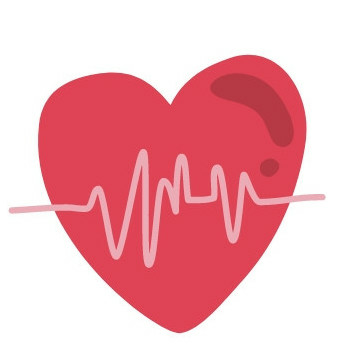 Heart Health
Heart Health
Your heart deserves your care. The heart, being a muscle, benefits from regular workouts. Over time, this results in a stronger heart muscle that can pump more blood with each beat. This leads to improved circulation and oxygen delivery to all your organs and tissues.
Aerobic activities like brisk walking, swimming, cycling, or dancing, makes your heart more efficient in pumping blood throughout your body.
Regular exercise helps reduce risk factors associated with heart diseases. Physical activity has been shown to lower blood pressure by promoting more flexible arteries and dilating blood vessels. This, in turn, reduces the strain on the heart and lessens the risk of hypertension, a leading cause of heart diseases.
Prevent Plaque Build-Up in the Arteries
Another benefit of exercise is its impact on cholesterol levels. Engaging in aerobic activities can elevate high-density lipoprotein (HDL) cholesterol—the “good” cholesterol—while decreasing levels of low-density lipoprotein (LDL) cholesterol—the “bad” cholesterol.
This balance contributes to the prevention of plaque buildup in arteries, reducing the likelihood of atherosclerosis and related cardiovascular issues.
Exercise is not just a matter of aesthetics but of overall good health.
Your Lungs
When you exercise, your heart and lungs work together to bring oxygen into your body and remove the waste products from your system.
You breathe faster during exercise and your lungs work harder, strengthening the tissue around your lungs. It is like a workout for your lungs, helping them function better.
A minimum of 30 minutes a day – five days a week, of moderate activity is the National Recommended Guidelines for adults.
Both aerobic and muscle-strengthening exercises can benefit your lungs.
3-Bone and Joint Health Built Through Exercise
Taking care of your bones and joints might not be the most glamorous thing, but it’s incredibly important.
Regular weight-bearing activities like walking and weightlifting exercises increase bone density and reduce the risk of osteoporosis. This makes bones dense and less likely to fracture.
Bones are continually rebuilding themselves. Weight-bearing exercises place stress on bones, prompting them to adapt and become denser. This process is especially crucial in preventing osteoporosis—a condition characterized by brittle and fragile bones.
As bones become stronger through exercise, the risk of fractures and bone-related complications diminishes significantly. This effect is particularly important as individuals age, as bone density tends to decrease over time.
Exercise Promotes Flexible Joints.
Activities like yoga, stretching, and low-impact aerobics improve the range of motion around joints. Regular movement keeps joints well-lubricated and nourished, reducing the risk of stiffness and discomfort. Moreover, maintaining a healthy weight through exercise relieves pressure on joints, especially weight-bearing ones like hips and knees.
Your joints love movement. By integrating regular physical activity into your routine, you pave the way for greater longevity, mobility, and an improved quality of life. Regular exercise improves their flexibility, enabling you to move gracefully and comfortably in your daily life. It will help you maintain that spring in your step for years to come.
4-Exercise and Cognitive Function
Believe it or not, exercise isn’t just for your body – it’s great for your brain too! It supports cognitive functions such as memory, attention, and problem-solving. It does this by encouraging the brain to form new connections and even grow new neurons.
Studies suggest that staying physically active can help preserve cognitive function and improved memory retention.
Aerobic exercises, in particular, have been associated with the growth of the hippocampus—a region of the brain critical for memory and learning.
It is partly due to increased blood flow to the brain, which nourishes brain cells and supports healthy brain function.
This connection underscores how exercise contributes not only to physical fitness but also to mental acuity.
Endorphins and Your Mood
Feeling good emotionally is just as important as feeling good physically. Exercise plays a pivotal role in this aspect as well.
Physical activity stimulates the release of endorphins, those wonderful “feel-good” chemicals that enhance your mood, reduce stress, and promote a positive outlook on life.
The profound impact of exercise on mental health and overall well-being cannot be overstated.
Exercise triggers the release of endorphins, often referred to as the body’s “feel-good” hormones. These chemicals act as natural painkillers and mood elevators.
Engaging in physical activities like jogging, dancing, or even brisk walking prompts the brain to release endorphins, creating a sense of euphoria and happiness. This immediate positive response contributes to an improved mood and a more positive outlook on life.
Stress and Anxiety Reduction through Physical Activity
Regular exercise is a proven stress-reliever. Physical activity helps in reducing the production of stress hormones like cortisol while simultaneously promoting the release of endorphins. This dual action alleviates feelings of stress and anxiety, providing individuals with a healthy outlet for managing the challenges of daily life.
Physical activity promotes the formation of new neural connections and encourages the growth of neurons. This process supports long-term brain health, potentially reducing the risk of age-related cognitive decline.
Exercise offers a natural remedy for stress and anxiety. By embracing regular physical activity, individuals can foster emotional resilience and a positive mindset.
5-Disease Prevention & Longevity through Exercise
Exercise emerges as a formidable defense against a spectrum of diseases, ranging from metabolic conditions to cancers and mental health disorders. This pivotal aspect of physical activity in disease prevention highlights its role in fostering overall well-being.
-Exercise and Your Blood Sugar Levels
Engaging in consistent exercise not only reduces the risk of developing type 2 diabetes but also aids in managing the condition for those already diagnosed. Physical activity contributes to weight loss, which is often recommended for individuals with diabetes to improve insulin sensitivity. Furthermore, exercise supports heart health, an aspect that’s especially important for people with diabetes, as they have an elevated risk of cardiovascular complications.
-Certain Cancers
Scientific research has established a strong link between regular exercise and a decreased risk of certain cancers. Colon, breast, and lung cancers, among others, have shown a lower incidence in individuals who engage in consistent
physical activity. The precise mechanisms behind this association are complex, but reduced inflammation, improved immune function, and better hormonal regulation are believed to play significant roles.
Physical activity reduces inflammation, a known contributor to cancer development. It also supports the immune system, enhancing the body’s ability to identify and eliminate abnormal cells. Additionally, exercise influences hormone levels, such as estrogen, which can impact the risk of hormone-related cancers like breast and uterine cancers.
-Cognitive Health
Regular exercise isn’t just beneficial for emotional well-being; it also supports cognitive health. Physical activity promotes the growth of new neurons and enhances neural connections. By maintaining brain health through exercise, you may support a sharper mind as you age!
-Exercise as a Complementary Treatment for Depression and Anxiety
Exercise has emerged as a complementary approach in the treatment of mental health disorders like depression and anxiety. Physical activity prompts the release of neurotransmitters like serotonin and dopamine, often referred to as “feel-good” hormones.
Exercise’s role in disease prevention is far-reaching and impactful. From type 2 diabetes to certain cancers and brain function, physical activity offers a proactive approach to maintaining health and well-being. Incorporating regular exercise into one’s lifestyle can help individuals build a resilient shield against a variety of diseases, contributing to a longer, healthier life.
-Longevity and Quality of Life
Staying active becomes increasingly essential as you age; it is your Fountain of Youth!
Not only does exercise contribute to a healthier body, but it also plays a significant role in your quality of life. You can remain active and engaged well into your later years.
Exercise, particularly resistance training, helps counteract this natural decline in muscle mass by promoting muscle growth and maintenance.
Strong muscles also contribute to better posture and balance, reducing the risk of falls and related injuries.
-Social Engagement and Quality of Life
Engaging in group exercises, sports, or even regular walks can provide opportunities for social interaction.
Maintaining a strong social network is essential for emotional well-being and can contribute to a higher quality of life as you age.
-Enhanced Energy Levels and Vitality
Regular exercise contributes to a noticeable boost in energy levels.
The body becomes more efficient at delivering oxygen and nutrients to its tissues. You will experience improved stamina, allowing you to tackle daily tasks with greater ease and enthusiasm.
Regular physical activity also can also help with better sleep patterns and improved sleep quality. You’ll find falling asleep easier, enjoying deeper rest, and waking up more refreshed.
-Positive Effects on Self-esteem and Body Image
Physical activity plays a profound role in shaping your self-perception and body image.
As individuals experience improved strength, endurance, and physical appearance—they often develop a surge of energy and a greater sense of self-esteem and self-worth.
This newfound confidence spills over into all aspects of daily life.
With new-found functional fitness, you can enjoy an active and fulfilling life as you age.
In a Nutshell -5 Reasons Why Exercise Is Important
Regular physical activity is a cornerstone of overall well-being. By incorporating exercise into your daily routine, you can take proactive steps towards achieving and maintaining optimal physical health.
Exercise isn’t just about looking good – it’s about feeling good from the inside out.
Embracing regular physical activity can truly redefine what it means to age gracefully.
So, whether it’s a brisk walk, a dance class, or some gentle yoga – keep moving!
By taking care of yourself, you’re keeping your body strong and your mind sharp.
Disclaimer: If you have any concerns or questions about your health, you should always consult with a physician or other healthcare professional. No content on this site should be substituted for direct medical advice from your doctor or other qualified healthcare practitioner. The information contained here is for informational purposes only. It is from my research and personal experience.
Related Posts
10 Tips for Gaining Muscle Mass After 50
What Is the Best Low-Impact Exercise?
Top 15 Benefits of Strength Training
How to Improve Your Grip Strength: Does Grip Strength Matter?
How Can You Prevent Muscle Loss as You Age?

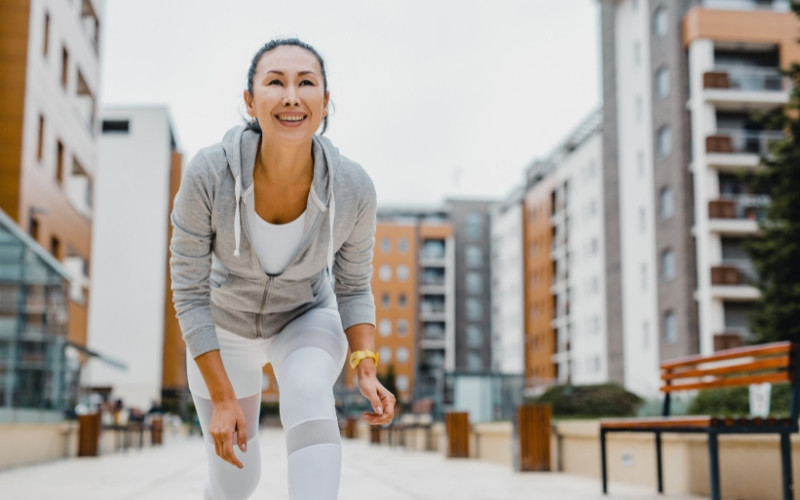
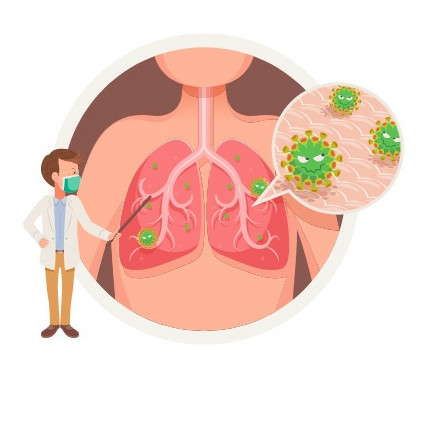
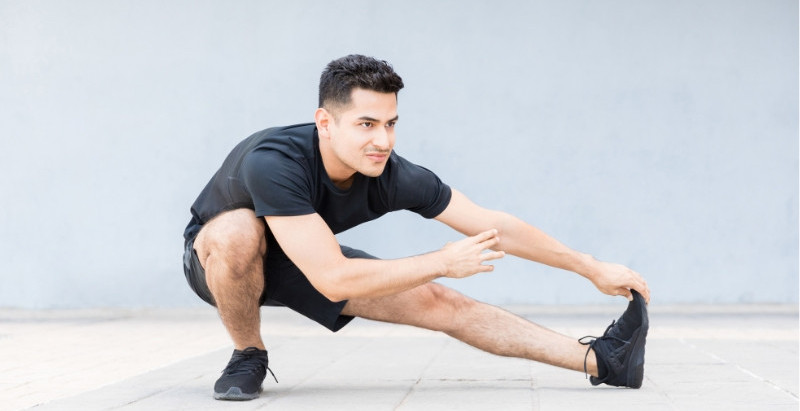
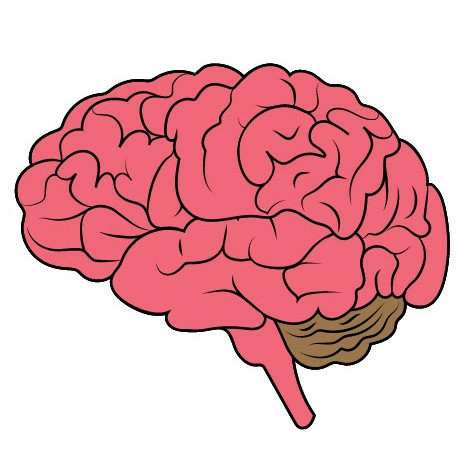
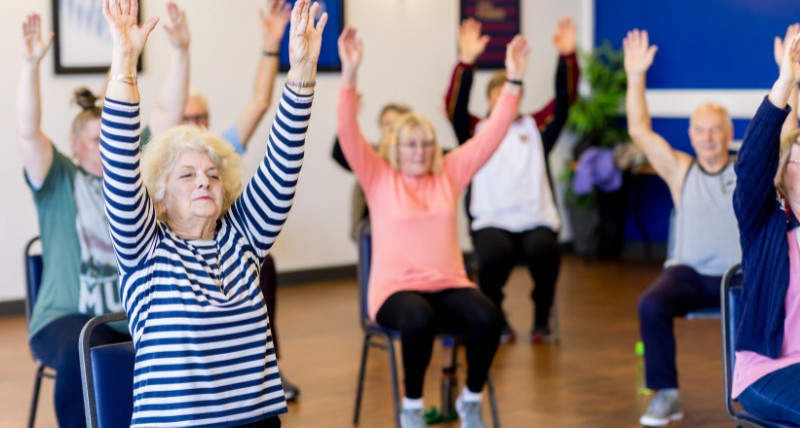
Hey Carolyn,
Thanks for this excellent post.
You’ve provided a very detailed article that helps me and all your readers to understand and appreciate the benefits of exercise and how we can easily implement exercise into our lifestyles.
Excellent information on metabolism, heart health, and the association of lowered risks of certain cancers by incorporating regular exercise in your daily lives. That’s very interesting as I didn’t know this.
Thanks again for providing such a detailed and informative post.
Really feel I learned a lot.
Cherie :o)
Hi Cherie, thanks for stopping by. As you get older, preserving your health becomes more important. You see more of your friends who have not paid attention to these things, and the problems they have. I do find it helpful to incorporate exercise into my day-to-day life as much as possible. I like to begin the day with exercise, and try to finish my day with what ever has been put on the back burner. We still have friends, family, work, and other social obligations. But I like to include exercise in there as well.
This article is both motivated and with a lot of good information. As many say, if healthy fitness was a medicine, it would be the best.
I was wondering about one thing. I was in a lecture a long time ago, which came with a very good memory for as I must admit that I forget that part too many times! She said the most important thing to need to always do when you train is to have 4 things in it. A) Strengt the muscles, as you mention in number one.
B) Let the hearth pump as you write in number 2.
C) Stretch muscles to keep the body flexible and strong.
And then the thing I forgot too many times, and I believe many do too, at least in my gym. D) Train the balance!
Do you agree that many forgot to train the balance? For example, as you know, it strength the deep muscles for example. What is your opinion about that?
-Weight bearing or resistance training strengthens both muscles and bones.
-Aerobic training strengthens the heart.
-Flexibility would go along with good balance. As we age and lose our flexibility, we are at a greater risk to lose our balance.
Mayo Clinic gives these classifications.
aerobic fitness, strength training, core exercises, balance training, and flexibility and stretching.
Exercise can be defined differently but the important thing is to keep moving. The body is meant to move and it is beneficial to our total person to stay active.
Thanks for stopping by. All the best!